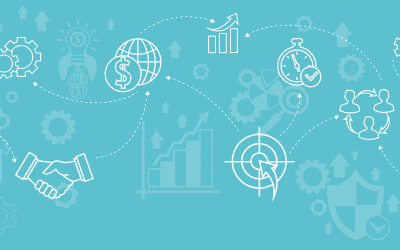At the end of the day, our most important asset is our health. And as city populations grow around the world, key resources that enable us to manage and protect our health become increasingly scarce.
Already, doctor and nurse shortages around the globe impact waiting times and attendance at hospital emergency departments.
We are also living longer, but often with the need to manage chronic conditions like diabetes, heart and lung disease risks, HIV, or mental health.
As smart infrastructure evolves, we are offered a great tool in being able to better harness technologies to better manage our own health, communicate with health professionals, and proactively ward off an emergency situation.
Ehealth is on the rise. And one of the key streams in ehealth is telemedicine.
Telemedicine refers to technologies and applications that enable patients to better manage their own health and to communicate with health professionals at key times of need. Health news site, HealthcareIT News, reported last year that the telemedicine industry is expected to be worth more than $34 billion by 2020, meaning more patients around the world will be able to access these technologies.
Already in the UK, recent studies show 67% of patients would prefer to manage chronic health conditions through remote patient monitoring, according to the HIT Consultant website.
Now there are signs that telemedicine is getting a boost across Europe, as the FI-C3 accelerator’s portfolio of startups begins to receive their funding and support.
“Ehealth applications were the majority in both FI-C3 Open Call 1 and Open Call 2,” said Ciro Acedo Boria, Head of the FI-C3 Accelerator. “Among ehealth startups, those addressing Telemedicine were also the majority,” he added.
This includes Alzhup and Zebra, both destined to make a huge impact in improving lives and reducing health risks.
AlzhUp
AlzhUp is a mobile application designed for patients who have been diagnosed with Alzheimer’s disease. It aims to delay the onset of cognitive impairment, and to help in active ageing. “We do not try to find a cure, since we do not think this is the current problem,” said Rafael Espinosa de los Monteros, Founder of AlzhUp. “The real problem is how to live with dementia, and how to increase the quality of life of patients, caregivers, families and also society.”
AlzhUp includes a library of scientifically validated therapies, a personal bank of memories for patients to store and use in their choice of therapies, support for the active participation of caregivers and family, and communication tools for the patients health care professionals.
When beginning to build AlzhUp, Espinosa de los Monteros turned to FIWARE for support:
“When we were about to start developing AlzhUp after carefully studying our business model, we heard about FIWARE technology and started checking it to understand what it could offer to us. For a young start-up with practically no budget, we saw FIWARE could be a technology that could not only save us money and headaches, but also give us access to a consortium that provided investment as well as guidance and contacts in a difficult field like e-health. That was of pretty high interest for us.”
AlzhUp makes use of several FIWARE Generic Enablers, says Espinosa de los Monteros:
“As a health project, at AlzhUp we are using several Generic Enablers from FIWARE. This includes Keyrock, because of the security capabilities for personal health data and because it has a clear approach to categorizing organizations (which is how we map the patient’s support network: the central member with Alzheimer’s and the rest of the “organization”, family and healthcare professionals in this case, around this figure with different roles). For our Personal Bank of Memories service, we use Object Storage, which has saved us a lot of problems.” Rafael says that in future, AlzhUp is hoping to make use of Cosmos for using big data analytics alongside the therapy library, and Kurento for a conference-style feature in their app.
Zebra
The Zebra Academy focuses on creating a telemedicine solution for stroke healthcare. Speed and competence in managing a stroke, are the two key factors that impact on the prognosis of stroke patients. The earlier the stroke is detected and treated, the greater likelihood the patient can maintain independence and survival.
Stroke is the leading cause worldwide of acquired disability, the second largest cause of dementia worldwide and in the top cause of death globally. In a country like Belgium alone, healthcare costs associated with stroke patients total more than €300 million.
Other FIWARE Initiatives focusing on Telemedicine: MentalCheck
While FI-C3 has released its portfolio of startups which demonstrates the growth in both ehealth and telemedicine solutions, other FIWARE-collaborating accelerators have also funded telemedicine startups.
FINODEX, for example, is supporting the app MentalCheck, which provides remote patient monitoring and treatment for people managing their mental health. Designed using evidence-based research on emotional health states, MentalCheck allows psychological patients to complete the industry standard ecological mental health when first arriving for their mental health care support services, and means that when the consultation occurs, the psychologist has a thorough and up to date understanding of the patient’s emotional wellbeing.
Speaking to Spanish newspaper site, El Mundo, MentalCheck Co-founder at Bipsin and neuroscientist Dr Mercedes Martínez Jauand said that at the moment, in 98% of cases health care professionals use a pen and paper to conduct these tests. Her hope is that technology can replace that, as well as provide a more objective measuring system.
“In consultations, it is common to find patients resistant to change. And because of their low mood, they are not able to perceive improvements. If we have an objective tool that gives us data from week one to week ten, then we can show that to the patient and work through those expectations, pointing out that indeed there has been positive change. There are some severe and depressive disorders that present with memory problems, so the MentalCheck evaluation is carried out in context and real time. It is going to be very helpful both in terms of research and for clinical use,” Dr Jauand told El Mundo.
New Challenges Emerging for Telemedicine
In an article in the noted health journal, HealthData Management, the need for telemedicine solutions to both gather personal data and combine it with evidence-based research will be essential to enhance clinical effectiveness and patient management.
Espinosa de los Monteros agrees, pointing out one of the key challenges that face telemedicine app providers is the constant iteration needed to test clinical evidence and build-in as new features or enhancements in their apps:“One of the biggest challenges we are having is not only technology, but how can we demonstrate that technology supports science. In other fields, technology is a support with clear use (X-rays, special machines, etc), but when we are talking about brain, there is always a component of uncertainty about how the use of technology itself provokes changes in the results,” he says.
“In our particular case, technology is a huge support to digitize therapies and create a specialized service for people with Alzheimer’s disease unseen before, but we need to test every step we take. We have scientifically validated therapies on paper, now we need to re-validate them to check and prove that the use of technology is neutral, that it is a vehicle to offer a new service but it doesn’t affect (in anyway) the results.”
FIWARE is excited to see all the FI-C3 portfolio of startups come on board. From A to Z, there are a whole new world of solutions emerging in fields like telemedicine.



